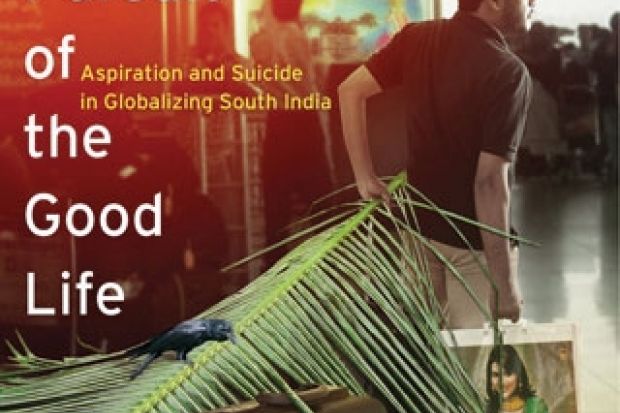For some time, scholars have been documenting and analysing the unravelling of various images projected by India’s south-westernmost state, Kerala: sloganised for tourists as God’s Own Country; promoted in development studies as a “model” of high quality of life index on low per capita income; memorialised by leftists as the place of the first freely elected Marxist government; and romanticised among feminists as a site of matriliny. The astonishing fact that this state has a suicide rate three times the Indian average has been remarked upon as part of Kerala’s deconstruction, but until now there has not been a proper book-length study of the phenomenon.
Jocelyn Lim Chua’s monograph lays interesting foundations for future work, making its argument by way of suicide case studies and supporting empirical material such as interviews with mental health professionals, priests and grieving families. There is good analysis and contemporary theory here, but these are given a light touch in favour of repeating one simple and persuasive argument: that pervasive and active discourse about suicide in Kerala is acting both as incitement and as frame. In the latter function, it blocks both Malayalis (the dominant ethnic group) and external observers from engaging with the singularities of individual cases, while serving political and value-based ends in producing categories of risk and moral evaluation. Chua charts the production of epidemiological categories and standardised narratives – Gulf wife, selfish teen, betrayed boyfriend – and tethers them to Kerala’s (unspoken and disavowed) communal, gendered and class politics.
Interesting sub-themes emerge along the way, such as the argument that life and death are not opposites but may be entangled – to the extent that death may support life, as when an elder plans sacrificial suicide in order to free offspring from the burden of support while gifting a windfall insurance payout. But I hungered both for more empirical texture and also for more progression from empirical narratives towards comparative studies or wider theoretical discussion. As each succinct case study gave way to another case, and yet another, I found myself with no time to reflect, and with many questions left hanging.
One strand I hope that future studies will follow is that of representations in media. As Chua notes, Malayalam films and nightly TV serials abound with visual images of suicide, such as the trope of the ceiling fan around which a rope or sari is hung, a stepstool kicked away. There is a particular intimacy to the mechanics of suicide in Kerala media, in both visual form and in the weekly serialised novellas in popular magazines. When Robin Jeffrey wrote Politics, Women and Well-Being: How Kerala Became a “Model” (1992), lauding the realisation of the state’s achievement of 100 per cent (claimed) literacy, the role of reading – and, as Chua carefully charts, of education – in outcomes such as its notorious suicide rate were not foreseen.
In Pursuit of the Good Life: Aspiration and Suicide in Globalizing South India
By Jocelyn Lim Chua
University of California Press, 256pp, £44.95 and £19.95
ISBN 9780520281158, 0281165 and 957640 (e-book)
Published 29 April 2014
Register to continue
Why register?
- Registration is free and only takes a moment
- Once registered, you can read 3 articles a month
- Sign up for our newsletter
Subscribe
Or subscribe for unlimited access to:
- Unlimited access to news, views, insights & reviews
- Digital editions
- Digital access to THE’s university and college rankings analysis
Already registered or a current subscriber?





